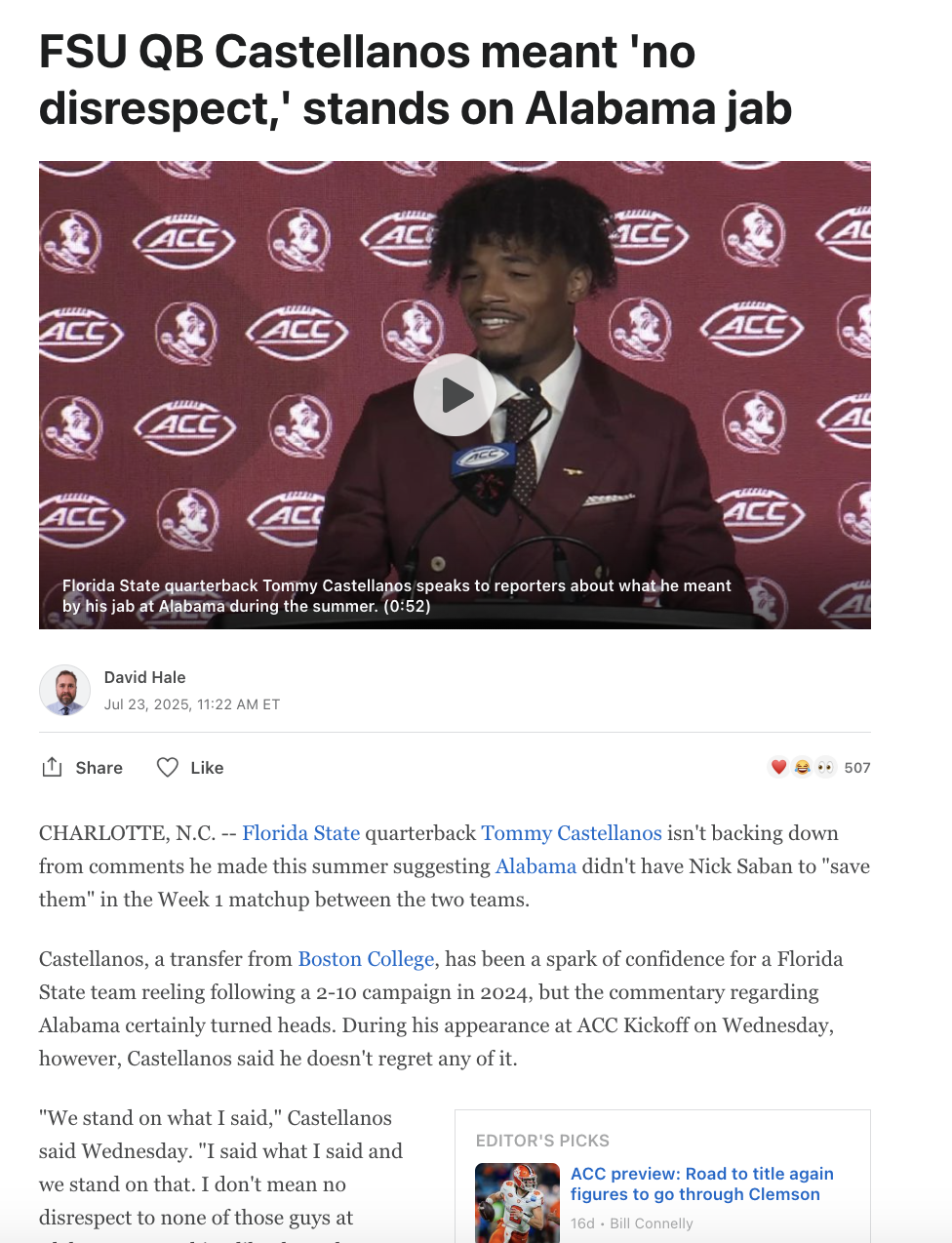“No Disrespect” Usually Means BRACE YOURSELF for Disrespect
Today’s blog is reacting to and framing the recent controversy surrounding new FSU QB Tommy Castellanos.
He made headlines after saying of their Week 1 opponent Alabama:
“Those guys don’t have Nick Saban to save them anymore.”
The quote drew enough attention to earn a top spot on ESPN.com. When asked about the blowback, Castellanos doubled down:
“We stand on what I said… I don’t mean no disrespect to none of those guys at Alabama or anything like that. I have confidence in my guys and the work we’ve been putting in… That’s all that was.”
And when I read those words, I HEAR so many young men. I hear adult men. I hear the classic setup:
“No disrespect, but…”
“Not to offend anyone, but…”
“Not to sound [insert ism you know is harmful], but…”
Before they launch straight into saying the very thing they claimed they didn’t want to do.
These qualifiers aren’t a hall pass. They don’t soften the blow — they signal you knew what you were about to say was out of bounds. Worse, they often reveal that the harm was intentional, not accidental.
And then there's this:
“I stand on what I said.”
It’s another Man Box defense mechanism. Instead of owning that we messed up, we double down — we cling to bravado instead of choosing unlearning.
But what if we did own it?
“Yes, I disrespected my opponent. I was trying to build confidence in my team, but I chose the wrong path. Next time, I’ll be direct and say: ‘I believe in us. We’re ready.’”
Say it with your chest — but don’t mistake hurtful for heartfelt.
This is an EASY TeamsOfMen session for coaches to run — both in the literal (how do we honor our opponent while still trying to beat them?) and in the broader context (do we think qualifiers erase harm or signal insecurity?). The answer should be the same in both: speak with clarity, not camouflage.
Coach Prompt:
How often do we hear our players preface a comment with “no disrespect” or “I don’t mean it like that”? What does that signal to us — and how do we coach them past it?
Player Prompt:
When have you used a phrase like “I don’t want to sound disrespectful, but…” — and then said something that clearly was? Why did you say it like that? What would ownership — real ownership — have looked like instead?


